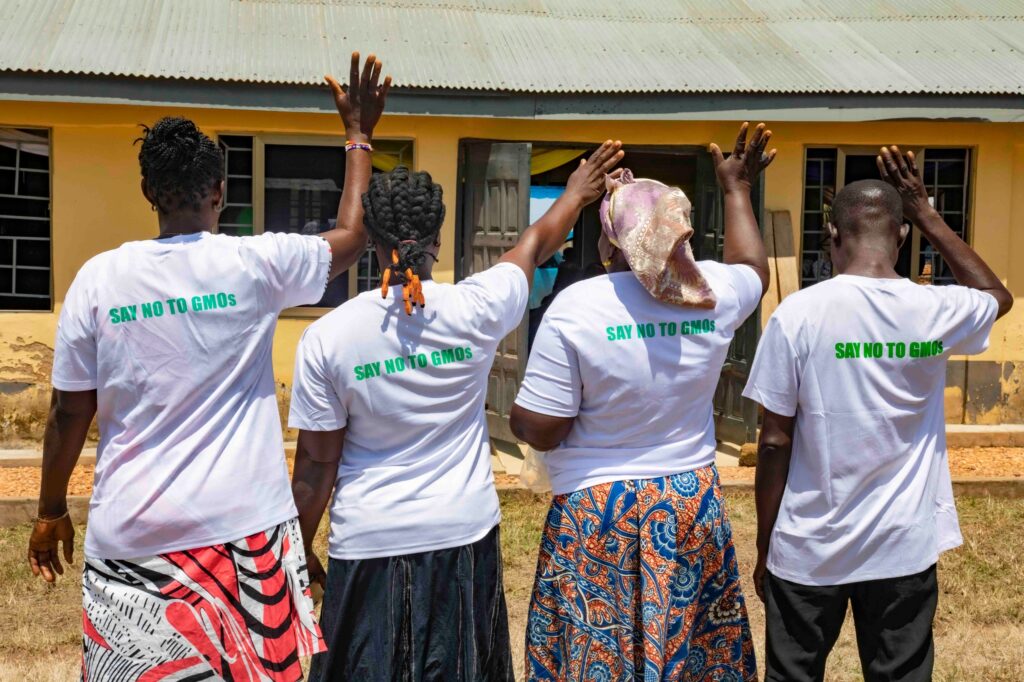The Peasant Farmers Association of Ghana (PFAG) engaged its members, civil society and other allied groups in the Oti region to create awareness on the existence and dangers of Genetically Modified Organisms (GMOs) which have been commercialized in Ghana. The event was organized at the Dambai in the Krachi East District, witnessed participation of over eight (80) stakeholders including farmers and civil society groups.
The acting Executive Director of PFAG, Mr. Bismark Owusu Nortey, reiterated the importance of farmers working in groups at the grass root level and presenting a formidable voice for recognition by stakeholders. He further highlighted the effects of climate change on agricultural activities which are hampering the production of food in the country and across the world. Participants were educated on the concept of GMO and the dangers it poses to human health and food production in general. It was indicated that even though the PFAG and other CSOs have relayed their sentiments on the commercialization of GMOs in the country, the government of Ghana has gone ahead to commercialize it. Therefore, farmers and consumers at large were entreated to be vigilant when purchasing seeds or food products, as currently a GMO cowpea variety has been commercialized in the country.
Farmers were further informed on the dangers of using GMO seeds as it seeks to cause overdependence on foreign farm inputs such as seeds and inorganic fertilizers and agrochemicals, thereby making us lose our food sovereignty. Also, the dependence on GMOs will contribute to high cost of production as seeds cannot be re-planted, requiring consistent purchases. Farmers called on the government to critically address challenges faced such as access to irrigation and storage facilities rather than promoting GMO seeds which does not seem to address any pertinent challenges.
One of the key allies of PFAG, Action Aid, also added their voices indicating the need for farmers to adopt sustainable means of producing food, with emphasis on agroecology, which promotes the use of indigenous seeds, organic fertilizers and pesticides to produce safe food for healthy living. Farmers were encouraged to seek knowledge on best agricultural management practices to improve food production and livelihoods.
Participants were entreated to be ambassadors of change by educating other farmers on the dangers of GMO products and the adoption of sustainable agricultural practices to produce safe foods for consumption. The participants had the opportunity to share their concerns on the adoption of agroecology and the total rejection of GMOs with such concerns addressed by the members of the movement. Members pledged their support to educate and train farmers on best agricultural practices while establishing reliable markets for organic food products.
As part of extending the education on GMOs, the PFAG distributed over 500 educational materials on what GMOs are and the dangers such products pose to human health and environment. Participants were encouraged to be ambassadors of change, educating more farmers on the dangers of GMOs and to adopt sustainable agricultural practices to produce safe food for all.


